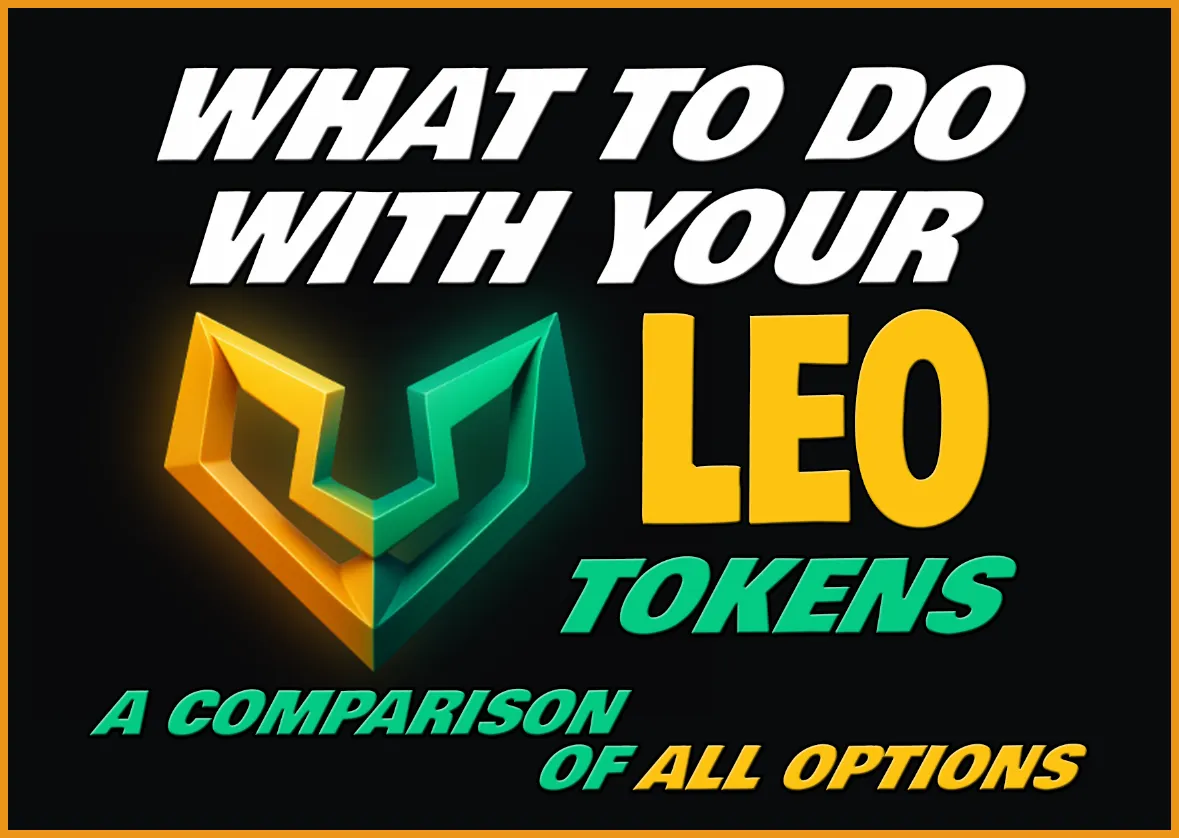
Logo Inleo owned by @inleo - Edit by @libertycrypto27- Fonts used are Open Source
 La versione in italiano è subito dopo la versione in inglese - The Italian version is immediately after the English version
La versione in italiano è subito dopo la versione in inglese - The Italian version is immediately after the English version

What to Do With Your LEO: A Comparison of All Options and the Central Role of LEO Dex!

In recent weeks, I have been thinking a lot about how to manage my LEO tokens, especially after the changes introduced on June 25, 2025, when Inleo completely changed the tokenomics of the LEO token, which went from version 1.0 to version 2.0.
LEO is no longer a Hive Engine token distributed through a reward pool based on an inflationary mechanism.
Now LEO is a token on Arbitrum with a limited supply and based on a deflationary system.
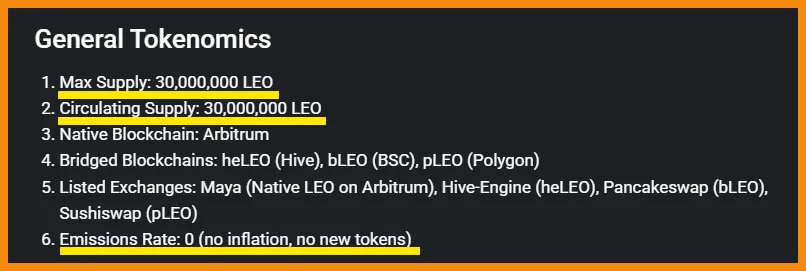
On Hive, the current LEO token is listed as heLEO = LEO on Hive Engine/ Tribal Dex = the wrapped version of the LEO token on Arbitrum.

The change from an inflationary system to a deflationary system has already had positive effects on the value of the LEO token, which has increased significantly in value.
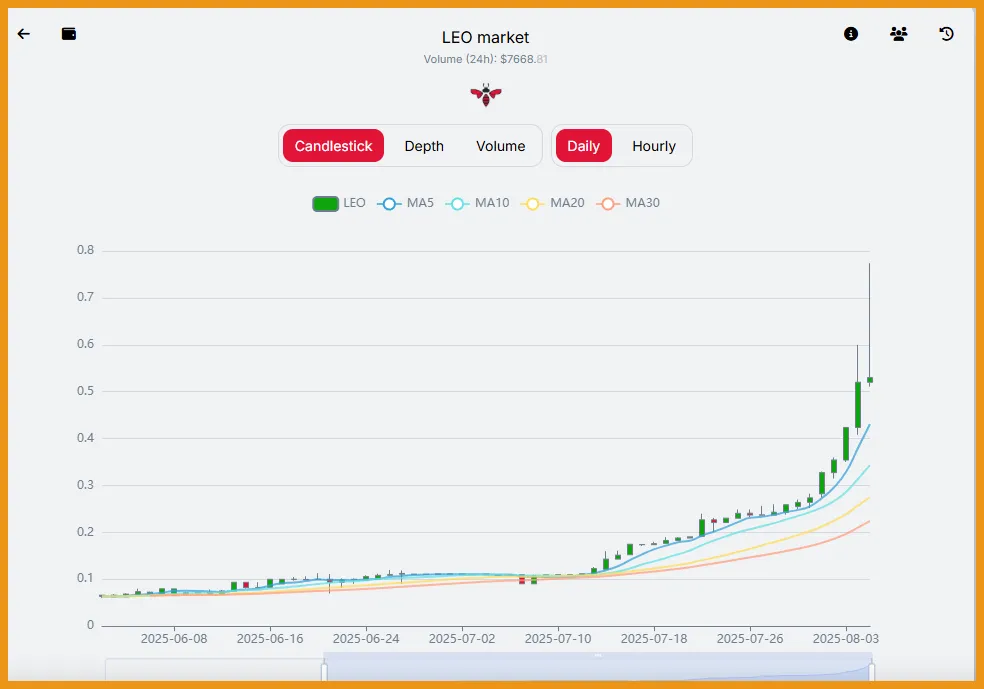
In my Hive Engine wallet, I have 18862.52 heLEO tokens (liquid LEO + staked LEO), for which I have not yet decided what to do, but I have begun to evaluate all possible options, and in this post, I share my initial personal assessments.

There are four main options for LEO tokens, and for each one I will try to identify the advantages and disadvantages while remaining as objective and impartial as possible.

Option 1: Continue to hold LEO tokens on Hive (heLEO)

The first option for LEO tokens is to keep them on Hive (heLEO) and manage them through Hive Dexes such as Hive Engine or Tribal Dex.
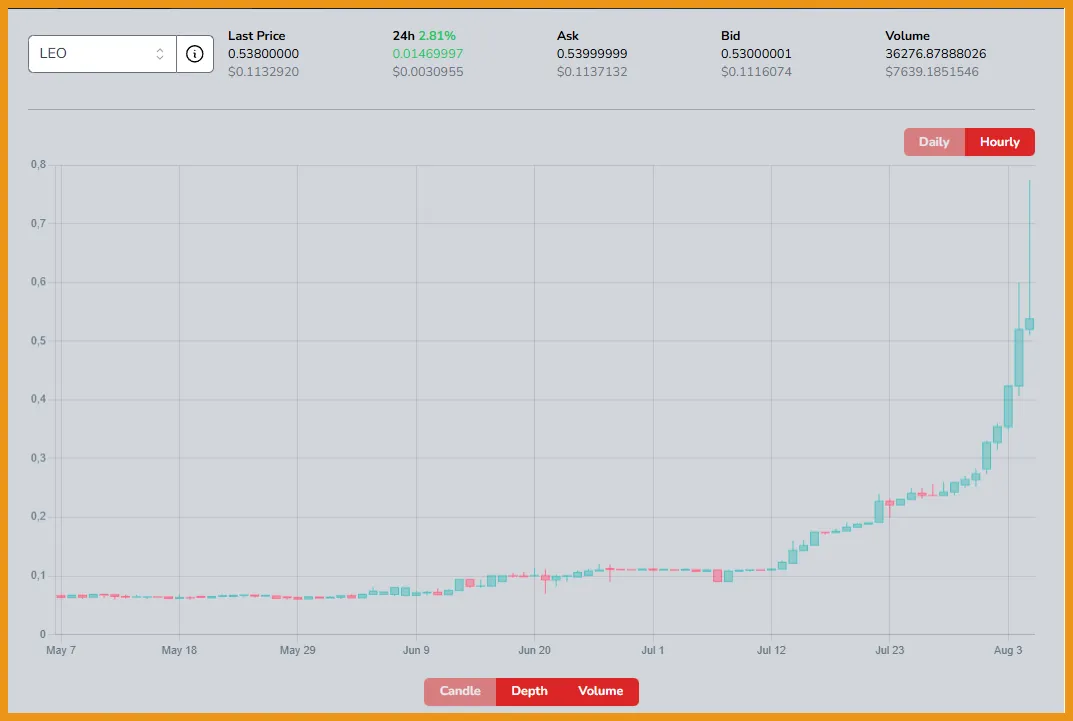 | 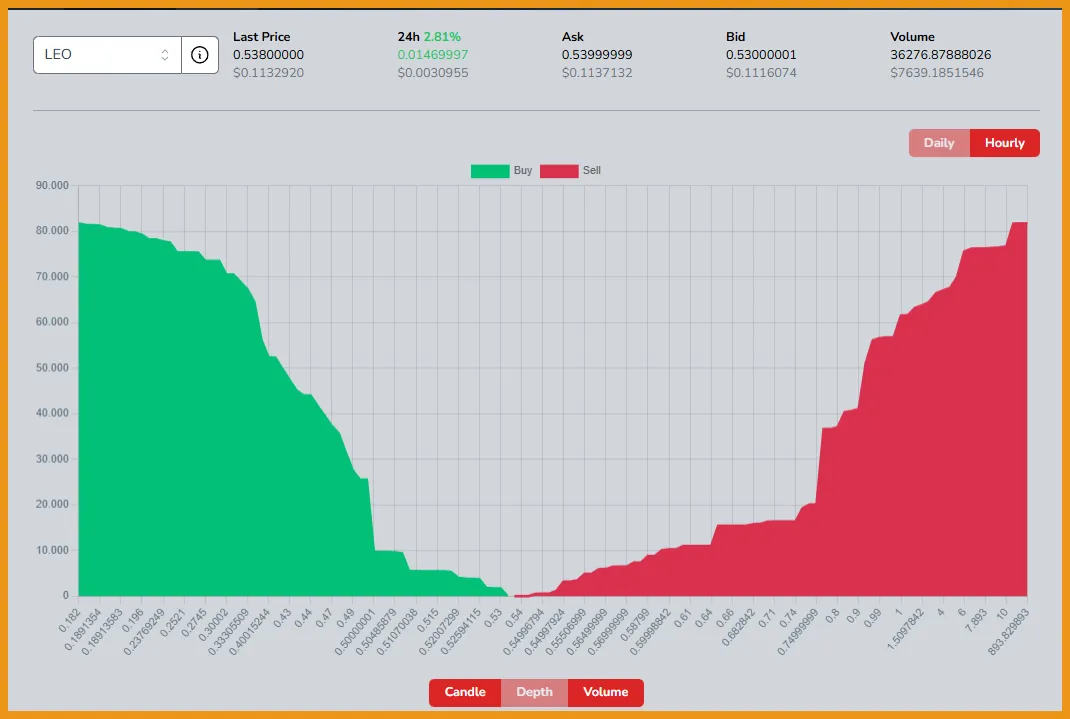 |
|---|---|
| https://hive-engine.com/trade/LEO |
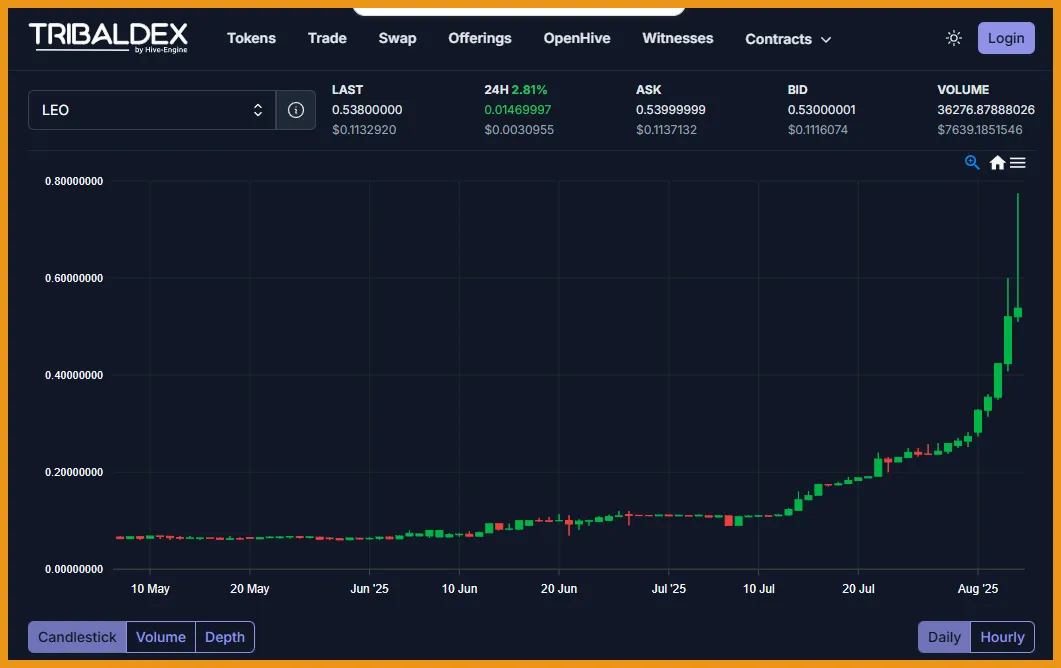 | 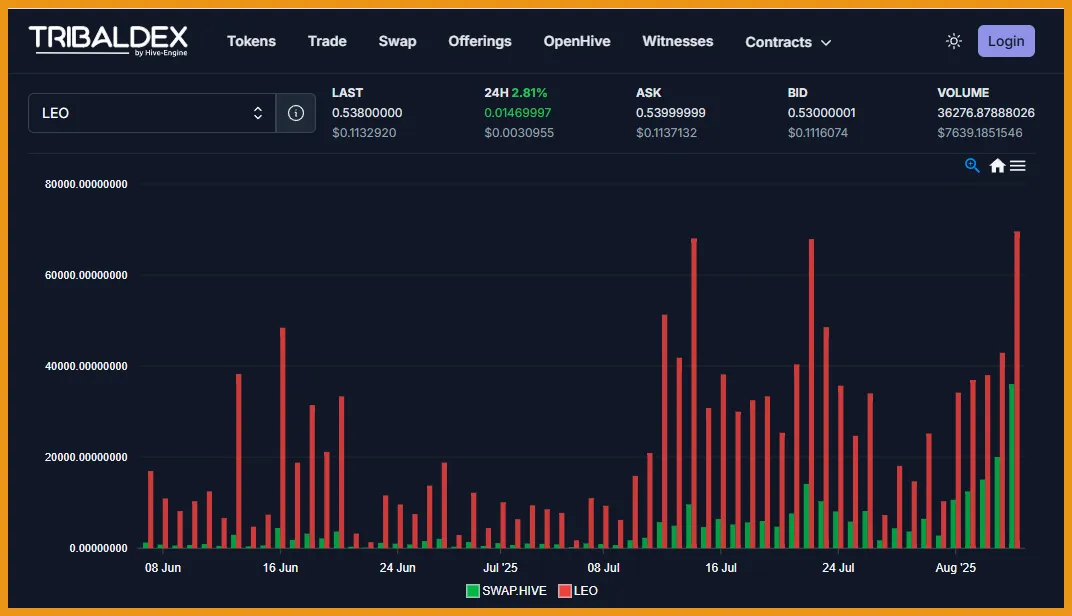 |
|---|---|
| https://tribaldex.com/trade/LEO |
For a Hiver, this is the simplest option because:
- Liquid LEO tokens can be easily sold and purchased through Hive Dex using SWAP.HIVE tokens
- LEO staked (LEO Power) tokens allow you to earn through classic staking and through the curation of posts published using the Inleo editor via the SIRP mechanism.
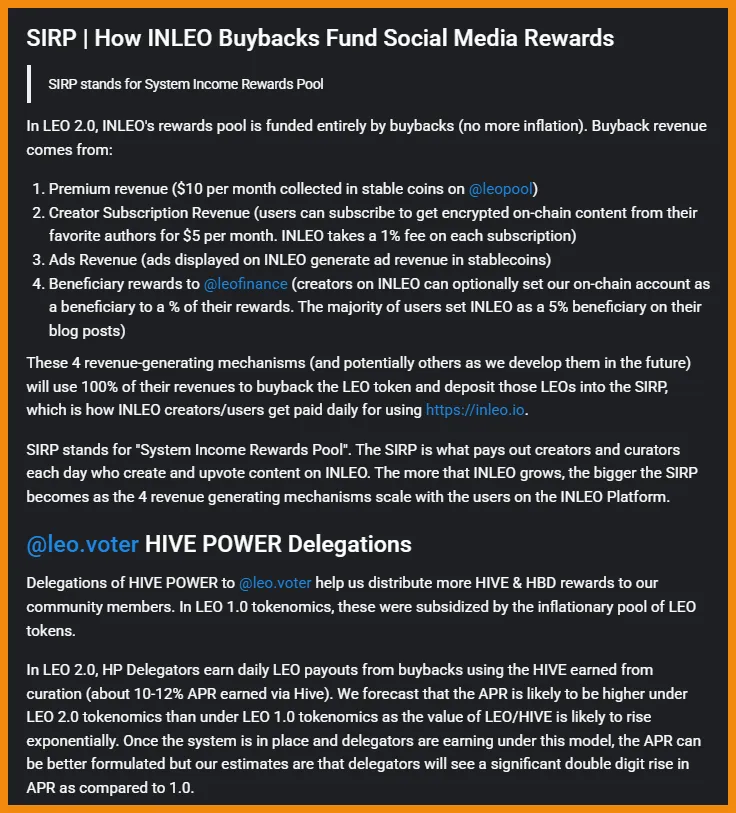
Advantages:
- Simplicity, because everything can be managed on Hive
- You can use staked LEO to support authors on Hive
- You earn LEO tokens (heLEO) from curation
Disadvantages:
- The new SIRP reward mechanism earns significantly less LEO than the previous Reward Pool-based mechanism.
- heLEO is no longer Inleo's native token but a wrapped version
- wrong choice if you don't actively curate and publish content via the Inleo editor

Option 2: Convert heLEO tokens to LEO on Arbitrum and stake via LEO Dex (sLEO)

Starting September 23, 2025, staking LEO tokens on Arbitrum via LEO Dex (sLEO) will generate daily rewards in USDC. These rewards will be funded by fees paid by LEO Dex users.
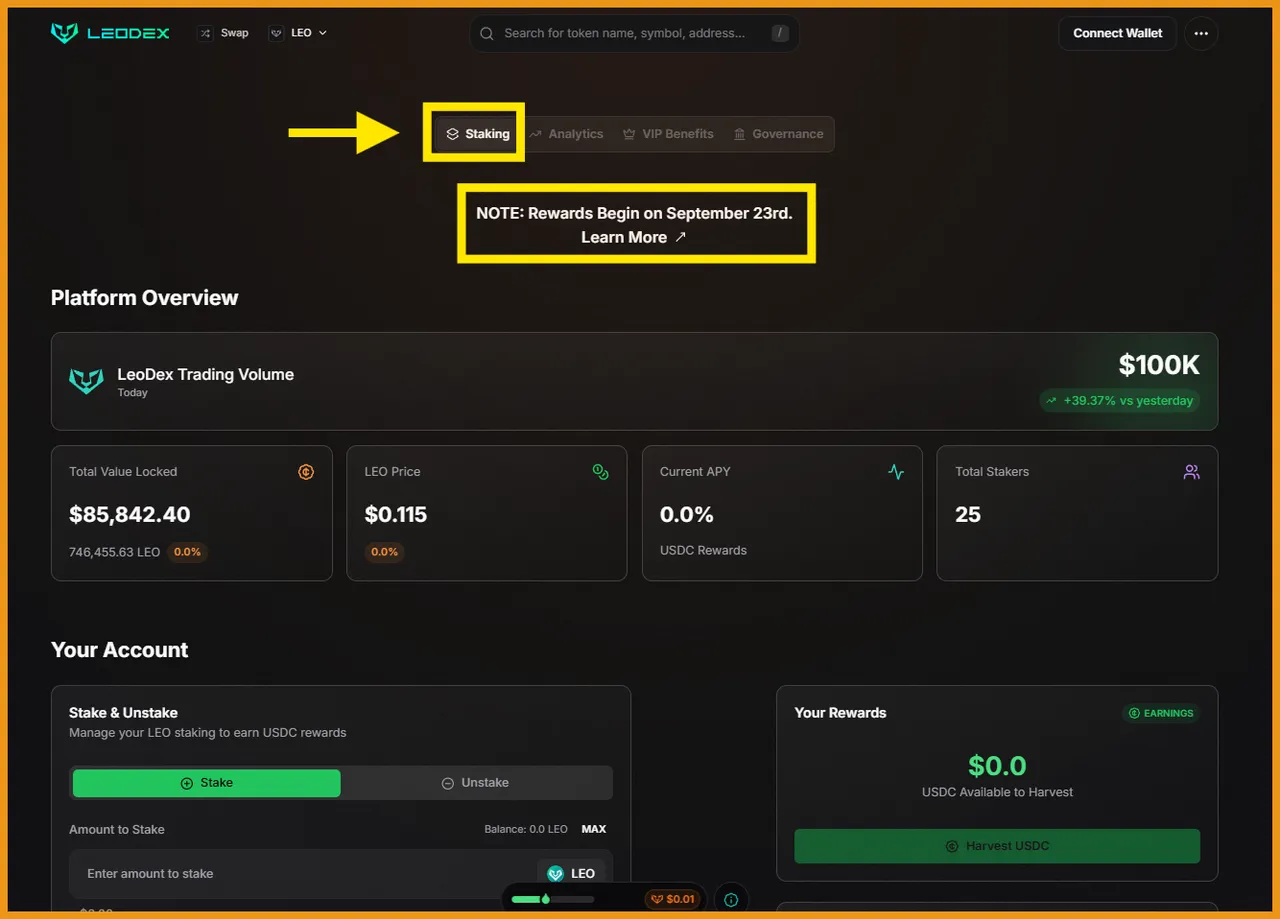
Advantages:
- Passive income in USDC
- Flexible stake: immediate staking and unstaking
- Deflation-based system and therefore sustainable because it is based on real fees
Disadvantages:
- USDC rewards are not yet active (starting September 23, 2025)
- Technically less straightforward than the first option because it requires opening a wallet compatible with Arbitrum (e.g., Metamask) and learning how to use LEO Dex

Option 3: Convert everything to Hive Power

This is the most prudent choice for those who see more potential in the HIVE token than in the LEO token: sell your LEO and buy HIVE, stake your HIVE tokens (Power Up) and earn 10-13% APR from staking + curation on Hive.
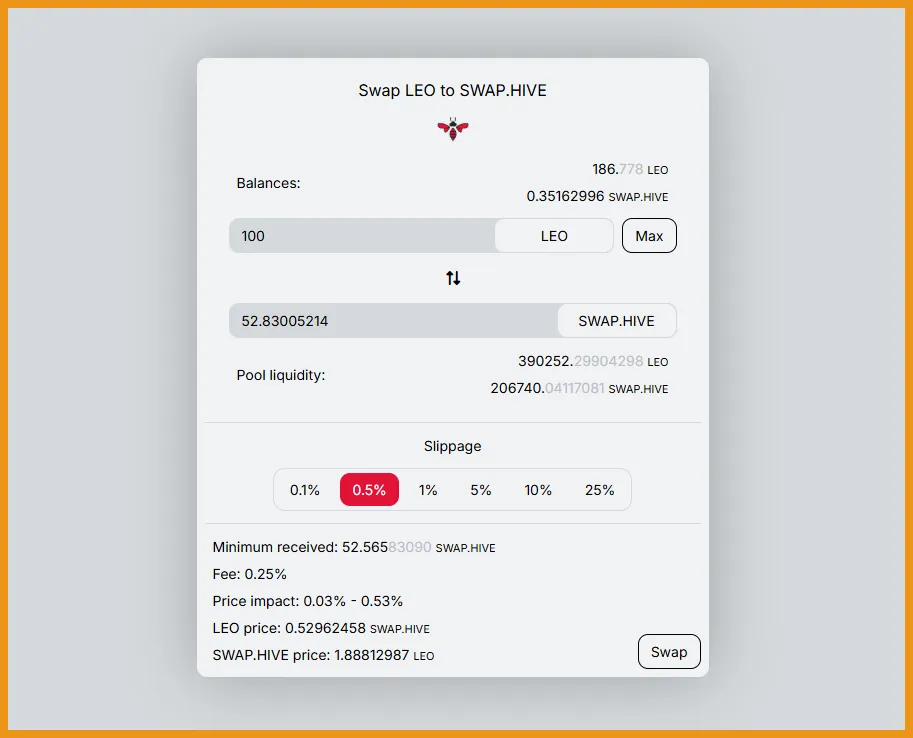
Advantages:
- Hive has a more stable market and is several years old
- Safer and more stable APR
- More power and influence on Hive
Disadvantages:
- If the LEO 2.0 project is successful, you will not participate in this success.
- If the LEO token increases in value, you lose out on greater gains.
- You do not participate in ongoing projects: Leo Dex, sLEO, USDC rewards, etc.

Option 4: Purchase of LSTR (LeoStrategy) tokens

LSTR is a Hive Engine token that represents shares in a fund that purchases and stakes LEO tokens on Arbitrum (sLEO).
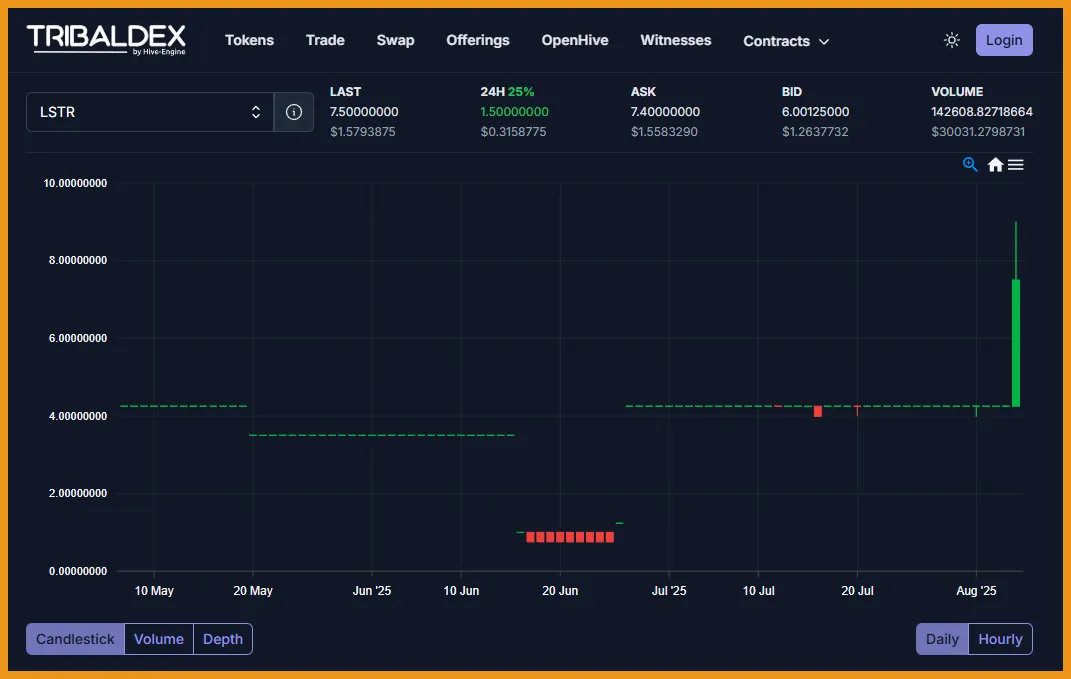
This purchase and staking operation will be continuous because when the USDC rewards are active, LeoStrategy will use the USDC rewards to purchase more and more LEO to stake and will never sell the LEO tokens.
Therefore, Leostrategy simplifies the management of the purchase of LEO tokens and the subsequent staking operation.
Advantages:
- Passive and simple participation in the LEO 2.0 project (you don't have to convert tokens and you don't have to use LEO Dex because LeoStrategy does everything).
- Greater potential if the LEO token increases in value
Disadvantages:
- You don't own LEO directly, but LSTR tokens.
- The value of LSTR will be influenced by the value of the LEO token, but it could also be different (underestimated or overestimated).
- The project is young and therefore needs to be tested over the long term.

LEO Dex is the heart of the new tokenomics!

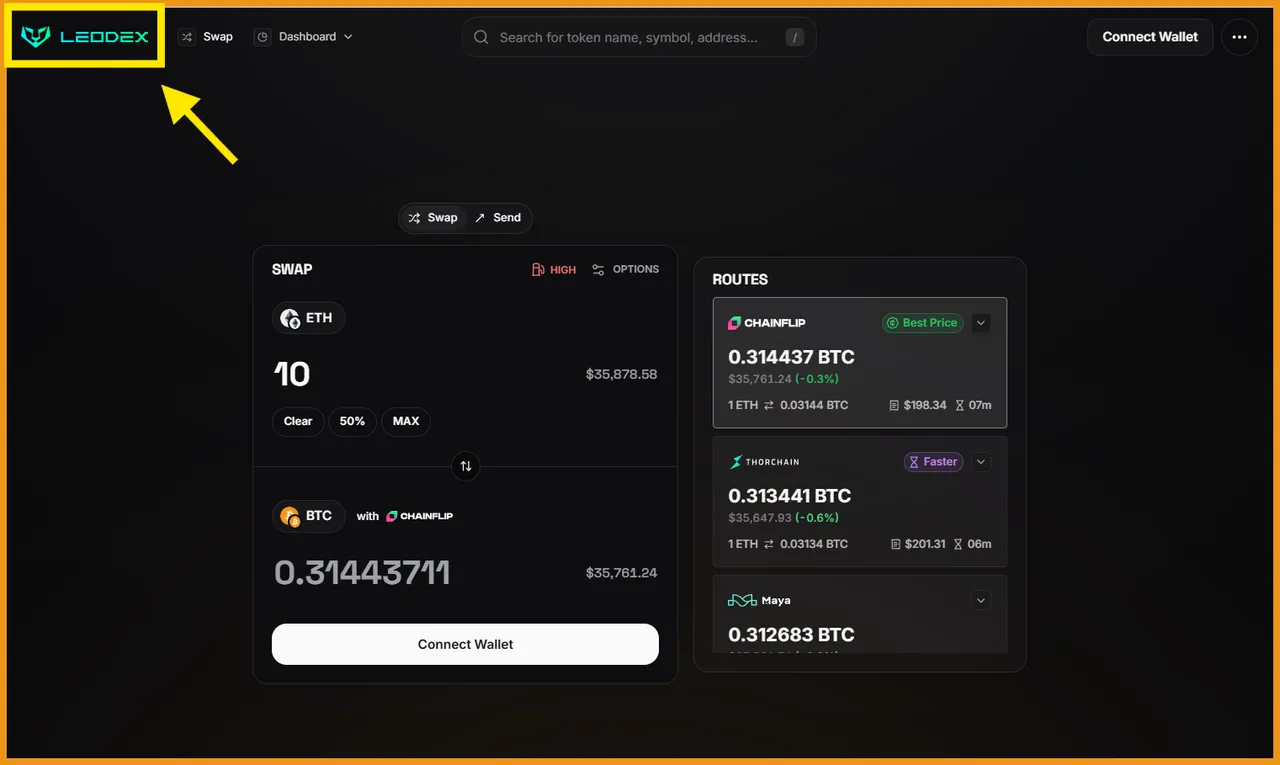
The USDC rewards for LEO stakers will come from the fees paid by those who use and will use Leo Dex.
If LeoDex is used and volumes are high, there will be fees that generate USDC, which will reward stakers and increase demand for LEO tokens = the value of the LEO token will increase
If LeoDex is not used or is used by only a few people (=low volume), there will be few fees to reward stakers = the value of LEO tokens will likely decrease.
The use and promotion of LEO Dex will be crucial to the success of LEO 2.0.

Final Thoughts

Since joining Hive, my main goal has always been to increase my Hive Power, but I have also accumulated Hive Engine tokens.
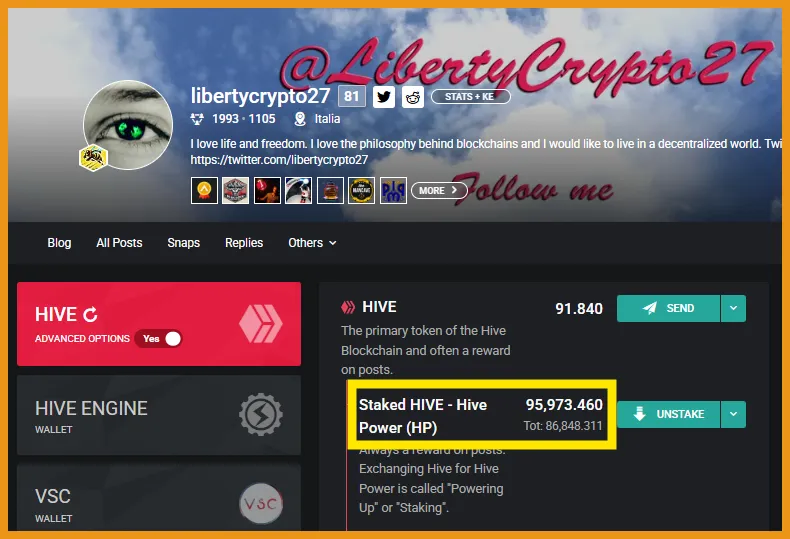
Hive is still my priority, but I have also been steadily accumulating LEO tokens.
At the beginning of the year, I set an annual accumulation goal for LEO tokens: to accumulate 20K staked LEO.
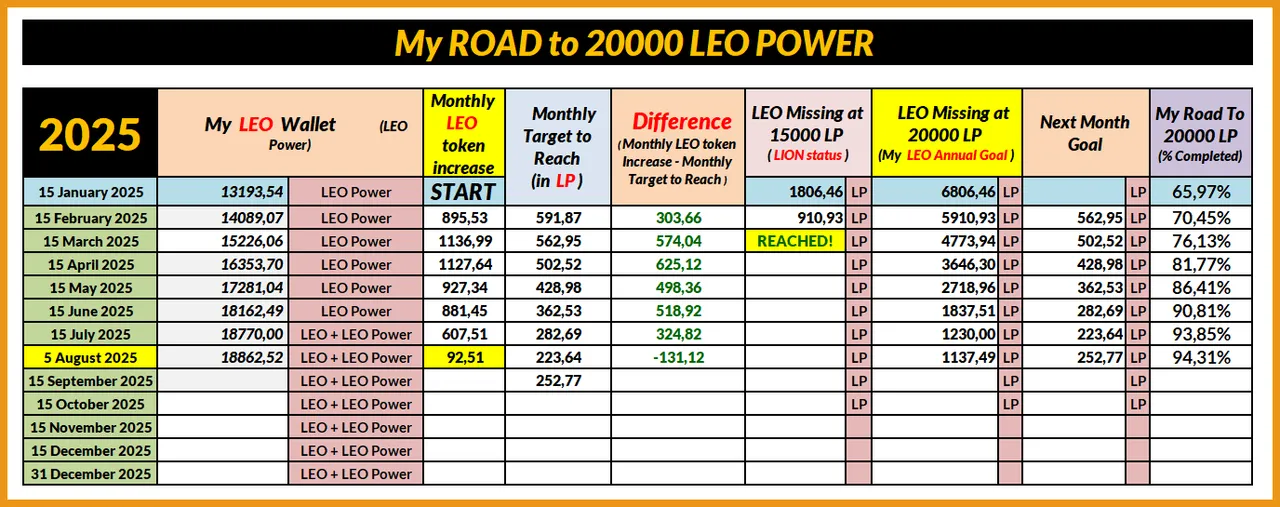
With the transition from LEO 1.0 to LEO 2.0, my strategy for accumulating LEO tokens will change because it will be influenced by:
- the trend in the market value of the LEO token
- the use and success of LEO Dex
- from my personal experience using LEO Dex.
I haven't yet decided exactly what strategy I will follow for my LEO tokens, but I will probably use a mix of the four options I have shown you in this post: sLEO, Hive Power, LSTR, and heLEO Power
In this post, I have shown you four options for LEO tokens to help you better understand the new LEO 2.0 model and to help you decide for yourself what to do with your LEO tokens.
If you have LEO tokens, the final choice must be your own personal choice because LEO 2.0 is a project with potential but also has risk factors.
What have you decided to do with your LEO tokens?


- InLeo UI: https://inleo.io/
- LeoDex: https://leodex.io/market/LEO
- LeoFi: https://leofi.io/
- Hive Stats: https://hivestats.io/
- LeoPedia: https://leopedia.io/
- InLeo Threads: https://inleo.io/threads
- LeoGlossary
- White Paper: https://whitepaper.leofinance.io/


Important Note:
I am not a financial advisor and the information contained in my posts are not financial advices.
Before investing in a blockchain project you should always do your own research and personal evaluations.
My advice is to always only invest what you can afford to lose with a light heart!



Cosa fare con i LEO: Tutte le Opzioni a Confronto e la centralità di LEO Dex!

In queste settimane ho riflettuto molto su come gestire i miei LEO token soprattutto dopo i cambiamenti introdotti a partire dal 25 giugno 2025, data in cui Inleo ha completamente cambiato la tokenomics del token LEO che è passato dalla versione 1.0 alla versione 2.0.
LEO non è più un Hive Engine token distributito tramite una reward pool basata su un meccanismo inflazionistico.
Adesso LEO è un token su Arbitrum con una supply limitata e basato su un sistema deflazionistico.

Su Hive l'attuale token LEO è presente come heLEO = LEO su Hive Engine/Tribal Dex = la wrapped version del token LEO su Arbitrum.

Nel mio Hive Engine wallet ho 18862.52 heLEO token (LEO liquidi + LEO staked) per i quali non ho ancora deciso cosa fare ma ho iniziato a valutare tutte le possibili opzioni e in questo post condivido le mie personali iniziali valutazioni.

Le opzioni per i LEO token sono principalmente quattro e per ognuna cercherò di individuare vantaggi e svantaggi cercando allo stesso tempo di essere il più oggettivo e imparziale possibile.

Opzione 1: Continuare a tenere i token LEO su Hive (heLEO)

La prima opzione sceglibile per i token LEO è mantenerli su Hive (heLEO) e gestirli tramite gli Hive Dex come Hive Engine o Tribal Dex.
 |  |
|---|---|
| https://hive-engine.com/trade/LEO |
 |  |
|---|---|
| https://tribaldex.com/trade/LEO |
Per un Hiver questa è l'opzione più semplice perchè:
- i token LEO liquidi possono essere venduti e acquistati facilmente tramite gli Hive Dex utilizzando i token SWAP.HIVE
- i token LEO staked (LEO Power) permettono di guadagnare tramite lo stake classico e tramite la curation dei post pubblicati utilizzando l'editor di Inleo tramite il meccanismo SIRP.

Vantaggi:
- semplicità perchè tutto è gestibile da Hive
- puoi usare i LEO staked per supportare gli autori su Hive
- guadagni token LEO dalla curation
Svantaggi:
- il nuovo meccanismo di ricompensa SIRP fa guadagnare molti meno LEO rispetto al meccanismo precedente basato su Reward Pool
- heLEO non è più il token nativo di Inleo ma è una versione wrapped
- scelta sbagliata se non fai attivamente curation e se non pubblichi contenuti tramite l'editor di Inleo

Opzione 2: Convertire i token heLEO in LEO su Arbitrum e fare staking tramite LEO Dex (sLEO)

A partire dal 23 settembre 2025 mettere in staking i token LEO su Arbitrum tramite LEO Dex (sLEO) produrrà ricompense giornaliere in USDC. Queste ricompense saranno alimentate dalle fees pagate da chi utilizza LEO Dex.

Vantaggi:
- guadagno passivo in USDC
- stake flessibile: staking e unstaking immediato
- sistema basato sulla deflazione e quindi sostenibile perchè basato su fee reali
Svantaggi:
- Le ricompense in USDC non sono ancora attive (start 23 settembre 2025)
- Tecnicamente meno semplice perchè richiede l'apertura di un wallet compatibile con Arbitrum (ad esempio Metamask)
- Imparare ad usare LEO Dex

Opzione 3: Convertire tutto in Hive Power

Questa è la scelta più prudente per chi vede più pontenziale nel token HIVE rispetto al token LEO: vendi i LEO e compri HIVE, metti i token HIVE in stake (Power Up) e guadagni il 10-13% APR dallo staking + curation su Hive.

Vantaggi:
- Hive ha un mercato più stabile e ha diversi anni di vita
- APR più sicuro e stabile
- più potere e influenza su Hive
Svantaggi:
- Non partecipi ad un eventuale successo del Progetto LEO 2.0
- Se il token LEO aumenta il suo valore hai perso un guadagno maggiore
- Non partecipi ai progetti in corso: Leo Dex, sLEO, Ricompense in USDC, ...

Opzione 4: Acquisto dei token LSTR (LeoStrategy)

LSTR è un Hive Engine token che rappresenta le quote di un fondo che acquista e mette in stake i token LEO su Arbitrum (sLEO).

Questa operazione di acquisto e di staking sarà continua perchè quando le ricompense in USDC saranno attive LeoStrategy utilizzerà le ricompense in USDC per acquistare sempre più LEO da mettere in staking e non venderà mai i token LEO.
Quindi Leostrategy semplifica la gestione dell'acquisto dei token LEO e la successiva operazione di messa in staking.
Vantaggi:
- Partecipazione passiva e semplice al progetto LEO 2.0 (non devi convertire token e non devi usare LEO Dex perchè fa tutto LeoStrategy.
- Potenziale maggiore se il token LEO aumenta di valore
Svantaggi:
- non possiedi LEO direttamente ma token LSTR
- il valore degli LSTR sarà influenzato dal valore del token LEO ma potrebbe essere anche diverso (sottostimato o sopravvalutato)
- progetto giovane e quindi da testare nel lungo periodo

LEO Dex è il cuore della nuova tokenomics!


Le rewards in USDC per i LEO stakers deriveranno dalle fee pagate da chi utilizza e utilizzerà Leo Dex.
Se LeoDex verrà usato e i volumi saranno alti ci saranno fee che genereranno USDC che premieranno gli stakers e che aumenteranno la domanda per i token LEO = il valore del token LEO aumenterà
Se LeoDex non verrà usato o verrà usato da poche persone (=poco volume) ci saranno poche fee per premiare gli stakers = il valore dei token LEO probabilmente diminuirà.
L'utilizzo e la promozione di LEO Dex sarà cruciale per il successo di LEO 2.0.

Considerazioni Finali

Da quando sono su Hive ho sempre avuto come obiettivo principale di aumentare il mio Hive Power ma ho anche accumulato Hive Engine tokens.

Hive è sempre la mia priorità ma ho accumulato costantemente anche i token LEO
Ad inizio anno avevo fissato un obiettivo di accumulo annuale per i token LEO: accumulare 20K LEO staked.

Con il passaggio da LEO 1.0 a LEO 2.0 la mia strategia di accumulo per i token LEO cambierà perchè sarà influenzata:
- dall'andamento del valore di mercato del token LEO
- dall'utilizzo e dal successo di LEO Dex
- dalla mia esperienza personale nell'uso di LEO Dex.
Non ho ancora deciso con precisione la strategia che seguirò per i miei token LEO ma probabilmente farò un mix delle quattro opzioni che ti ho mostrato in questo post: sLEO, Hive Power, LSTR e heLEO Power
In questo post ti ho mostrato quattro opzioni per i token LEO per aiutarti a capire meglio il nuovo modello LEO 2.0 e per aiutarti a decidere in propria autonomia cosa fare con i token LEO.
Se hai token LEO la scelta finale deve essere la tua scelta personale perchè LEO 2.0 è un progetto con potenziale ma presenta anche dei fattori di rischio.
Tu che hai deciso di fare con i LEO?


- InLeo UI: https://inleo.io/
- LeoDex: https://leodex.io/
- LeoFi: https://leofi.io/
- Hive Stats: https://hivestats.io/
- LeoPedia: https://leopedia.io/
- InLeo Threads: https://inleo.io/threads
- LeoGlossary
- White Paper: https://whitepaper.leofinance.io/


Important Note:

I am not a financial advisor and the information contained in this post is not financial advice.
Before investing in a blockchain project you should always do your own research and personal evaluations.

